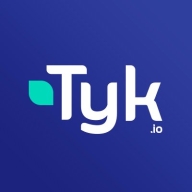

Apigee and Tyk are in the API management platforms category. Apigee slightly leads in enterprise-grade implementations due to its integration and support structures, while Tyk's flexibility and cost-effectiveness appeal to developers.
Features: Apigee offers smart analytics, policy management, and security features tailored for large-scale enterprises. Tyk stands out for its open-source capabilities, dashboard analytics, and customizable features, which appeal to businesses seeking autonomy and flexibility.
Room for Improvement: Apigee could enhance its cost structure and simplify its deployment process for smaller enterprises. Tyk can improve its support for complex scenarios and broaden enterprise integrations. Both platforms could benefit from enhancing user interface simplicity.
Ease of Deployment and Customer Service: Apigee provides comprehensive deployment options, supporting cloud, hybrid, and on-premises with strong customer service for enterprises. Tyk, meanwhile, offers straightforward deployments with flexibility in hybrid environments but may require extended support for complex setups.
Pricing and ROI: Apigee implies a higher initial cost reflecting comprehensive enterprise-grade features, potentially offering longer-term ROI in large deployments. Tyk provides a budget-friendly option with competitive pricing models, aligning well with businesses seeking a faster, possibly higher ROI due to lower setup costs.
| Product | Market Share (%) |
|---|---|
| Apigee | 8.3% |
| Tyk | 2.0% |
| Other | 89.7% |
| Company Size | Count |
|---|---|
| Small Business | 20 |
| Midsize Enterprise | 9 |
| Large Enterprise | 65 |
| Company Size | Count |
|---|---|
| Small Business | 5 |
| Large Enterprise | 2 |
Apigee is a platform for developing and managing APIs. Apigee offers an interface for your core services by wrapping them with a proxy layer which is then accessed by other developers. With Apigee, you can design and build APIs and then securely share their services and data without exposing any code.
Because app developers make HTTP requests to an API proxy rather than directly to your services, your services are separated from the developers. All the developer needs to know is the URL of the API proxy endpoint, necessary query parameters, authorization credentials (if they exist), and the response data format.
The API proxy isolates the app developer from your backend service. Therefore, you are free to change the service implementation if the public API remains consistent. By maintaining a consistent frontend API, existing client apps will continue to work regardless of changes on the backend.
Key capabilities of the Apigee API management platform include:
Reviews from Real Users:
Apigee stands out among its competitors for a number of reasons. Several major ones are its rich developer portal, its advanced analytics, and its central monitoring system.
Carlos R., a software architect at Caja Los Andes writes, “The central monitoring feature is the most valuable. It also provides security for the APIs and high availability for our use cases. Apigee is the best product in the industry in comparison to other API management solutions. It helps in fast development, which is a top point. It also supports a lot of industry standards and has excellent documentation.”
An associate vice president at a tech services company notes, “The analytics function and the developer portal are the two valuable features of Apigee. The analytics part is very good, and the developer portal is quite rich in features. The authentication mechanisms are quite easily built into Apigee, which is something that most of the other products have also now started supporting.”
We monitor all API Management reviews to prevent fraudulent reviews and keep review quality high. We do not post reviews by company employees or direct competitors. We validate each review for authenticity via cross-reference with LinkedIn, and personal follow-up with the reviewer when necessary.